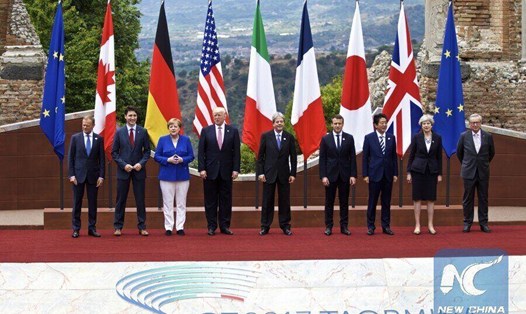On November 11 and 12 (local time), G7 foreign ministers and many guests from major economies gathered in the town of Niagara-on-the-Lake, on the shore of Lake Ontario, near the US-Canada border.
The conference was chaired by Canadian Foreign Minister Anita Anand, with the participation of US Secretary of State Marco Rubio, the foreign ministers of the UK, France, Germany, Italy, Japan and guest representatives from Australia, Brazil, India, Saudi Arabia, Mexico, South Korea, South Africa and Ukraine.
Speaking before the conference, Canadian Foreign Minister Anita Anand emphasized that relations between countries must be maintained in many fields, despite existing trade differences.
Meanwhile, US Secretary of State Marco Rubio affirmed that the US goal is to protect the security of the American people first, while emphasizing the need to promote cooperation to end global conflicts.
One of the top priorities of the conference is to promote long-term peace in the Middle East. Anand affirmed that the ceasefire plan in Gaza must be respected and said Canada is ready to coordinate to prepare for a future Gaza reconstruction conference.
On the morning of November 12, the Foreign Ministers held a separate meeting with Ukrainian Foreign Minister Dmytro Kuleba to discuss winter support. Previously, British Foreign Minister Yvette Cooper announced a grant of £13 million ($17 million) to help Ukraine restore power, heating and domestic water systems amid increased Russian attacks. Canada has also just announced a similar support package.
In 2025, Canada will assume the role of G7 Chair in the context of repeated cracks in bilateral relations with the US. President Trump has imposed tariffs on Canadian imports and criticized the Ontario government for posting anti-tax advertisements in the US. Canadian Prime Minister Mark Carney has apologized and said he is ready to resume trade talks when Washington is ready.
Another dividing topic is defense spending. US Secretary of State Marco Rubio said President Trump asked NATO allies to increase their defense budget to 5% of GDP, far exceeding the bloc's current commitments. Among the G7 members, Canada and Italy are still the two countries that have not achieved this goal.
According to the US State Department, Rubio, in addition to focusing on discussing ceasefire in Ukraine and Gaza and maritime security, also discussed issues in Haiti and Sudan. Canada, in addition to prioritizing the end of the Ukrainian conflict, is also interested in Arctic security and developing clean energy.
At a working lunch on November 12, the Foreign Ministers discussed the strategic mineral supply chain, especially the 34 rare minerals and metals that Canada owns - from lithium, cobalt to nickel - which the Pentagon considers a core factor for national security and the defense industry.
Ms. Anand said that despite the difference in trade and policy, "the Canada - US relationship still has many intersections that need to be maintained". She revealed that Mr. Rubio had invited Canada to play an intermediary role in gathering countries to ensure the sustainability of the Gaza ceasefire agreement.
The G7 Summit in Canada is therefore not only an annual meeting, but also a test of the resilience of the industrial democracy alliance in the face of internal cracks, while the world is still immersed in conflict and uncertainty.










